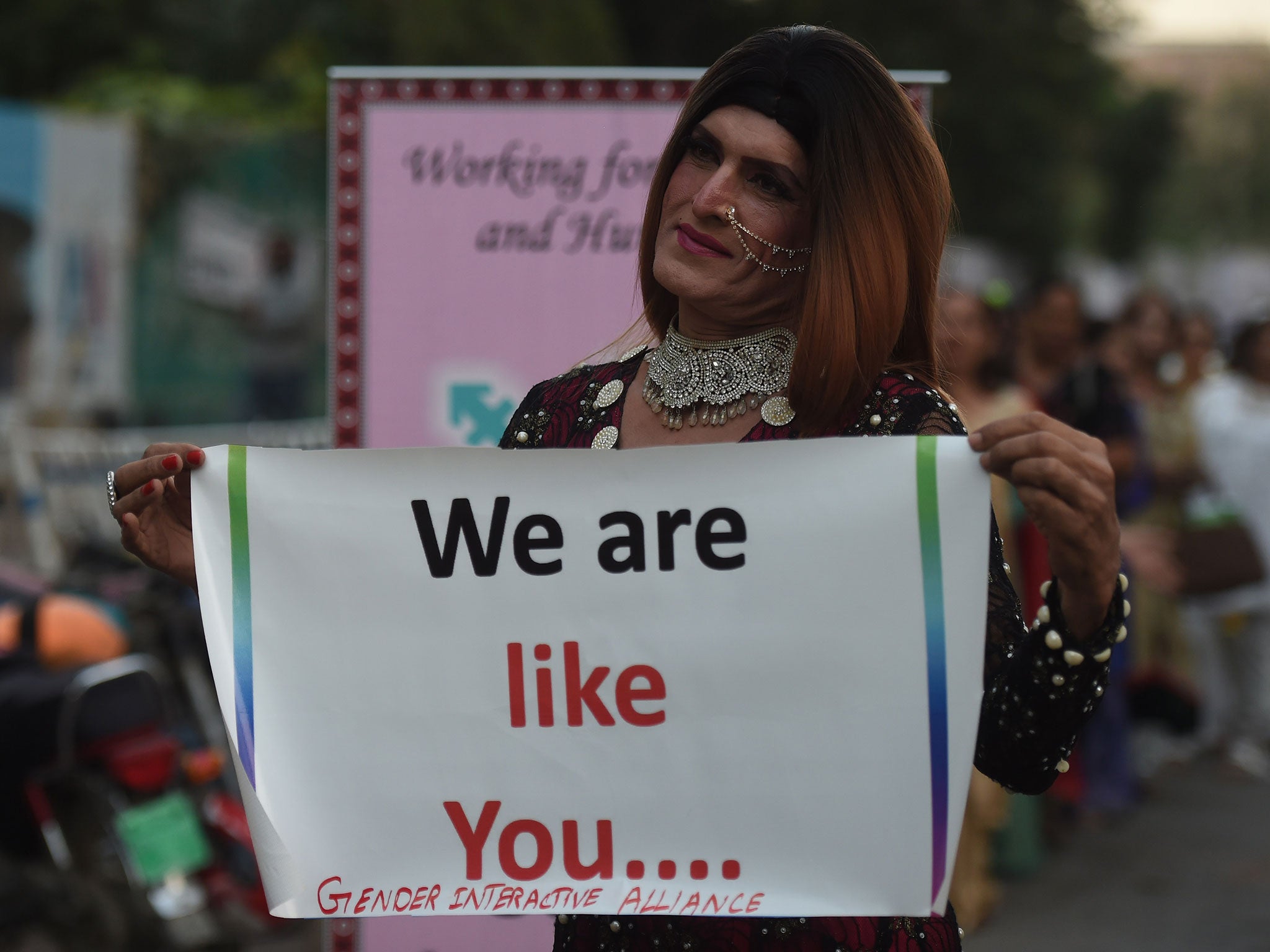30 years ago, the conversations we had about Section 28 were the same as the ones we have about trans rights today
I first came out in 1993 when Section 28 was still firmly in place. My school couldn’t even acknowledge the existence of lesbians, let alone talk about the challenges we faced – and moral panic in the media talked about children being 'turned' gay if we talked about it


Your support helps us to tell the story
From reproductive rights to climate change to Big Tech, The Independent is on the ground when the story is developing. Whether it's investigating the financials of Elon Musk's pro-Trump PAC or producing our latest documentary, 'The A Word', which shines a light on the American women fighting for reproductive rights, we know how important it is to parse out the facts from the messaging.
At such a critical moment in US history, we need reporters on the ground. Your donation allows us to keep sending journalists to speak to both sides of the story.
The Independent is trusted by Americans across the entire political spectrum. And unlike many other quality news outlets, we choose not to lock Americans out of our reporting and analysis with paywalls. We believe quality journalism should be available to everyone, paid for by those who can afford it.
Your support makes all the difference.Today marks 30 years since Section 28 was introduced – a crushing piece of legislation that banned local authorities from “promoting homosexuality”. Teachers were effectively stopped from talking about same-sex relationships and properly supporting pupils who may have been questioning their sexuality.
I first came out in 1993 when Section 28 was still firmly in place. My school couldn’t even acknowledge the existence of lesbians, let alone talk about the challenges we faced. Teachers and students alike were forced to hide who they were and suffer in silence. All the while the media wrote stories about lesbian, gay and bi people that might seem ridiculous to some of us now. Headlines focused on children being “turned” gay if they were taught about same-sex relationships and lesbians were portrayed as people who would corrupt children and steal wives.
For a young Catholic girl just starting to explore her sexuality, this hostile environment left me with very little to help me feel proud of who I was. Role models were few and far between, so I had to hang on to every reference of lesbians in any form of popular culture I could find, like Beth Jordache on Brookside and books such as Oranges Are Not the Only Fruit.
Section 28 ushered in a dark era for LGBT people and the struggle to repeal it took years. It only left the statute books in 2000 in Scotland and 2003 in England and Wales. Since then, tremendous progress has been made towards equality. Same-sex couples applying for adoption have equal rights, discrimination based on sexual orientation has been outlawed and same-sex marriage is legal.
With all the progress we’ve achieved, we’re sometimes guilty of forgetting how recently it was that lesbian, gay and bi people were targeted so viciously. But even though Section 28 is no longer law, its damaging impact still lives on in schools across Britain. Stonewall’s 2017 research shows two in five LGBT students (40 per cent) are still never taught anything about LGBT issues at school, while nearly half (45 per cent) are bullied for being LGBT.
Despite huge legal progress, discrimination towards lesbian, gay, bi and trans people continues to affect their ability to be themselves in their daily life. Anyone who thought the fight was over has come to realise, in the past few years, that it isn’t.
Just look at the recent stories about trans and non-binary people in Britain and you get a scary sense of deja vu. Since the government announced plans to launch a consultation on reform of the Gender Recognition Act (GRA), trans and non-binary people have faced a barrage of abuse in the media.
Shocking levels of misinformation and scaremongering are cruelly attacking trans people’s right to exist, as well as publicly questioning their identities. Deeply misleading headlines about the GRA and young people being “turned trans” echoes exactly the way LGB people were talked about under Section 28.
History is repeating itself and it’s alarming to see such a vulnerable minority of the population being presented as such a major threat. Trans people in Britain today face huge levels of abuse and inequality. Two in five trans people (41 per cent) have had a hate crime committed against them in the past year, and nearly two in three trans students (64 per cent) are bullied for being trans in school.
Their fight is our fight and it’s our responsibility to stand with and in support of trans and non-binary people. The current process for trans people to have their gender identity legally recognised with a Gender Recognition Certificate is costly, bureaucratic and treats being trans as a mental illness. Reforming this system will be a huge step forwards. It will be another milestone in the journey towards full LGBT equality.
We’ve come a long way since 1988, but we cannot be complacent. Section 28 is gone, but not forgotten. LGBT young people across Britain still face bullying and discrimination simply because of who they are. Everyone deserves to grow up in a world where they are not afraid to be themselves and are supported to reach their full potential.
Ruth Hunt is the chief executive of Stonewall
Join our commenting forum
Join thought-provoking conversations, follow other Independent readers and see their replies
Comments